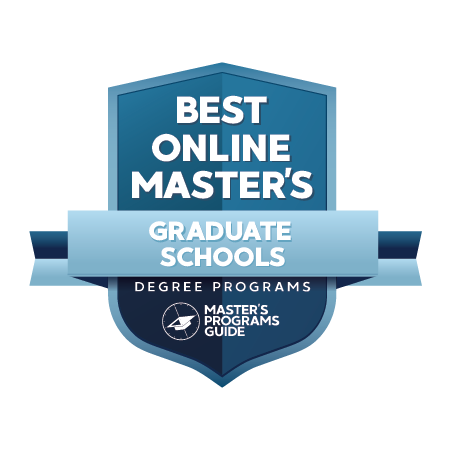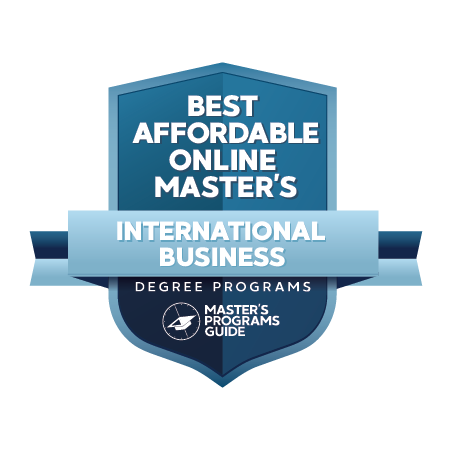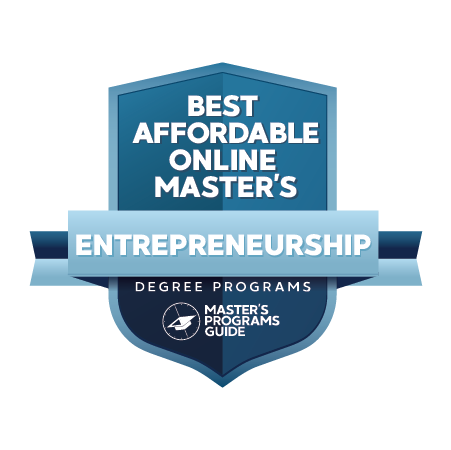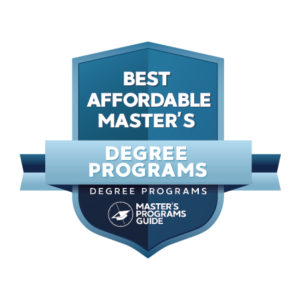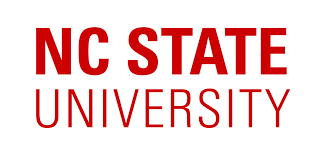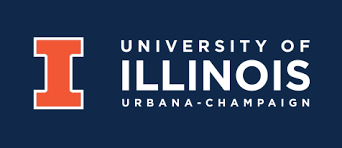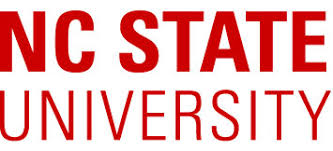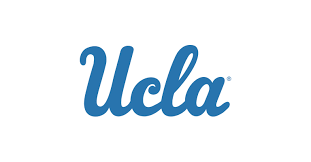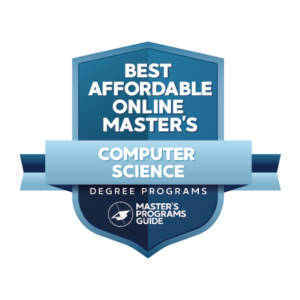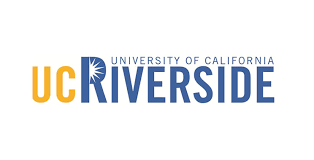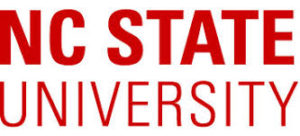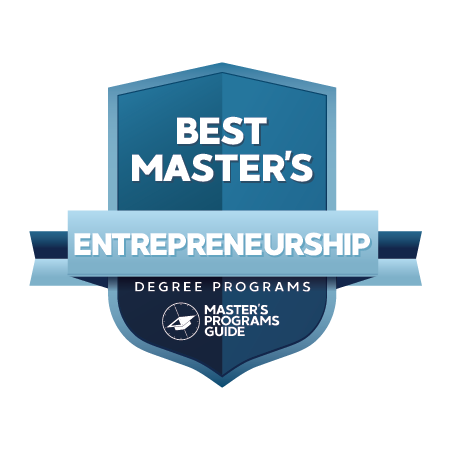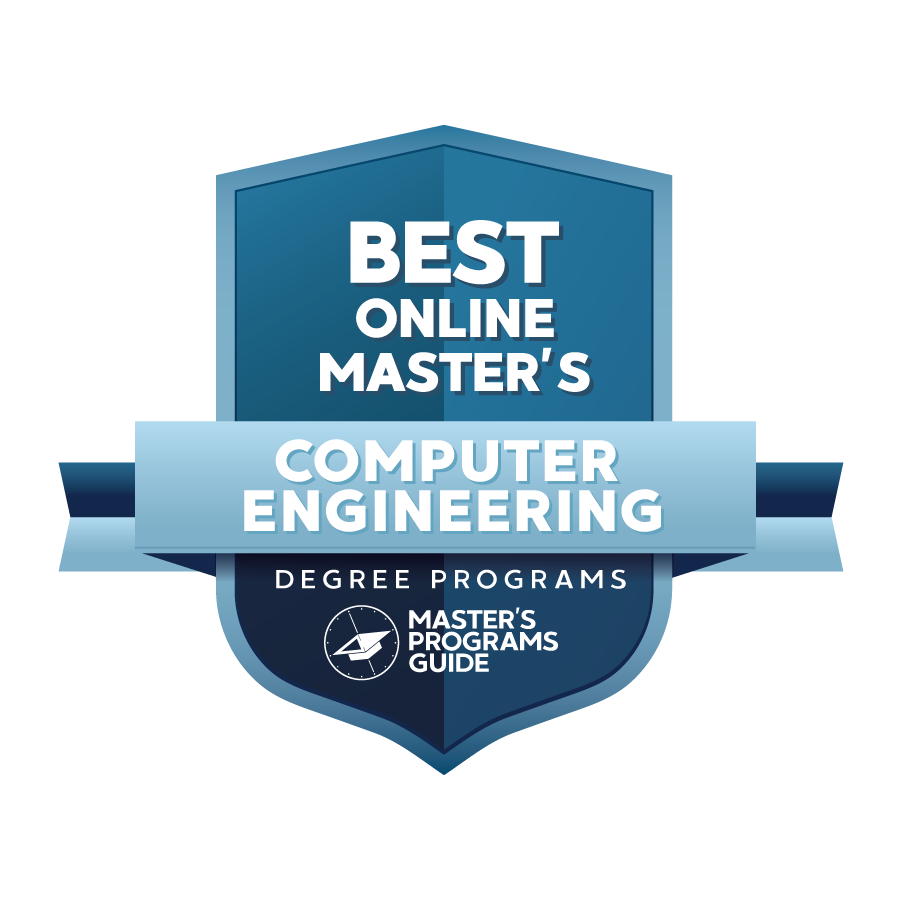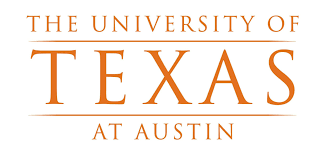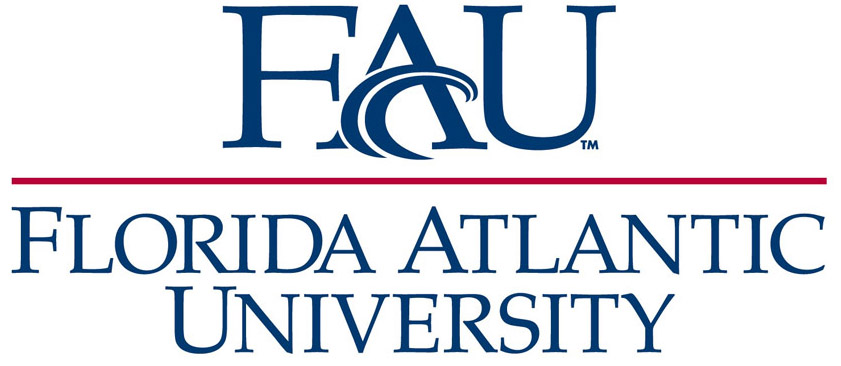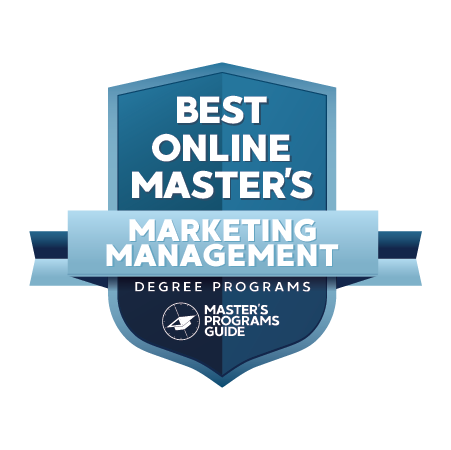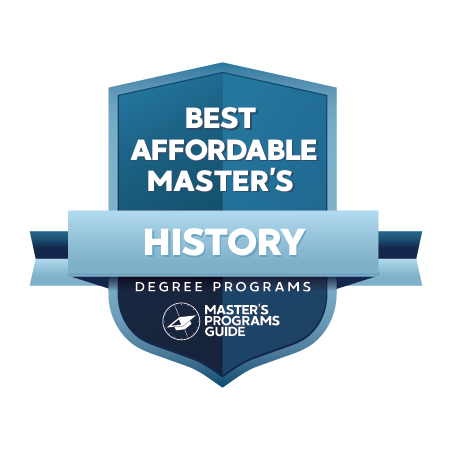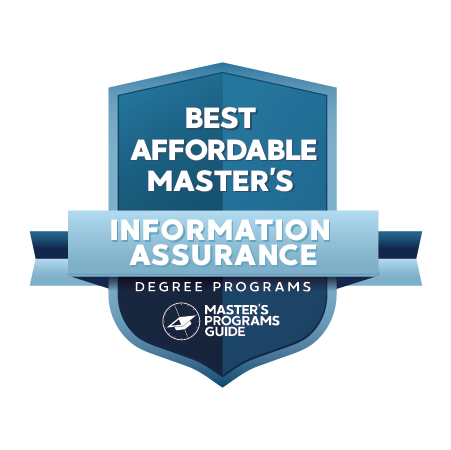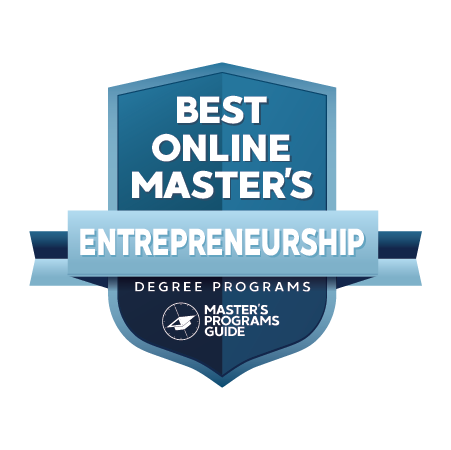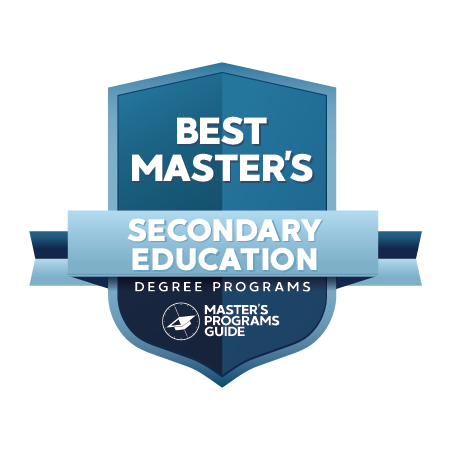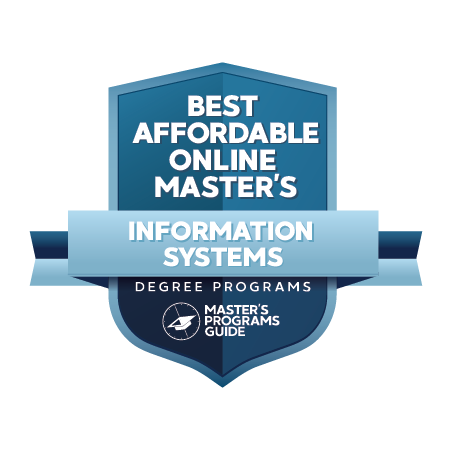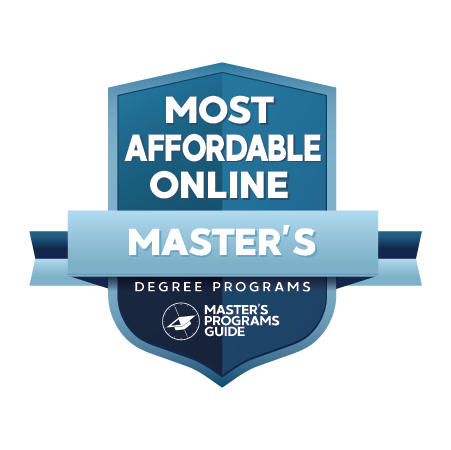Ready to find your ideal master's program?
www.mastersprogramsguide.com is an advertising-supported site. Featured or trusted partner programs and all school search, finder, or match results are for schools that compensate us. This compensation does not influence our school rankings, resource guides, or other editorially-independent information published on this site.
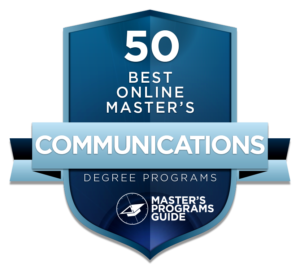 Communications has always been a broad field; with advancements in technology, the area widened even further. Traditionally, communications graduates would work toward standard broadcast media – newspaper, magazine (print media) or television. Cable television expanded the opportunities for graduates, although print media is declining in favor of internet-sourced news. But while prospects diminished in the traditional print media environment, the internet has exploded with available outlets for journalism, observation, marketing, and general communications.
Communications has always been a broad field; with advancements in technology, the area widened even further. Traditionally, communications graduates would work toward standard broadcast media – newspaper, magazine (print media) or television. Cable television expanded the opportunities for graduates, although print media is declining in favor of internet-sourced news. But while prospects diminished in the traditional print media environment, the internet has exploded with available outlets for journalism, observation, marketing, and general communications.
Quick Links to Our Top 10
- Walden University
- Johns Hopkins
- Liberty University
- University of Southern California
- Drexel University
- Drexel University
- Northwestern University
- Ball State University
- National University
- Southern New Hampshire University
Master’s Program Guide is pleased to present the 50 Best Online Master’s in Communications 2018. With the advent (and subsequent explosion) of social media, new topics have come to light – responsibility, ethics, and freedom of speech, for example. With these environmental changes, programs have updated and adapted their curriculum to address the circumstances in the current culture.
Specific degree types represented in this ranking include the following.
- Online M.S. Communication
- Online Master of Arts in Communications
- Online Master of Science in Communication & Composition
- Online Master of Mass Communication (MMC)
- Online Master of Science in Technical Communications
- Online Master of Science in Business Journalism
- Online Master of Science in Integrated Communication-General
- Online Master of Science in Professional Communication in Health Services Administration
- Online Master of Science in Communication Innovation
- Online Master of Arts in Professional Communication
- Online Master of Arts in Journalism and Mass Communication
- Online Master of Arts in Communication Studies
- Online Master of Science in Health Communication
- Online Master of Science in Strategic Brand Communication
- Online Master of Arts in Integrated Marketing Communications (IMC)
- Online Master of Arts in Communication Arts
- Online Master of Arts in Business and Professional Communication Degree
- Online Master of Science in Data Marketing Communications
- Online Master of Business Administration/Master of Arts in Communication Studies
- Online Master of Science in Mass Media Arts and Journalism
- Online Master of Arts in Contemporary Communication
- Online Master of Science in Corporate and Organizational Communication
- Online Master of Arts in Strategic Communications
- Online Master of Arts in Administration (MAA) in Communication Arts
- Online Masters in Global Strategic Communication
- Online Master of Arts in Digital Communication
- Online Master of Science in Communication Sciences and Disorders
- Online Master of Arts in Communication & Leadership
- Online Master of Arts in Journalism
- Online MA Advertising and Marketing Communications
- Online Master of Communication Management
The methodology used to compile this ranking was based on the individual metric of the number of programs available online, program popularity (enrollment), graduation rate, and student to faculty ratio. Ties were broken by comparing the number of programs, then enrollment figures. The number of online programs was given the most significant weight (40%); each remaining metric was given equal weight (20% each).
50. Minnesota State University – College of Arts and Humanities
Minnesota State University Mankato is a public research university located in Mankato, Minnesota on a 303-acre campus approximately 85 miles southwest of the Twin Cities of Minneapolis and St. Paul. Established in 1868 as the Mankato Normal School, the institution began with just 27 students. In 1921 the school became the Mankato State Teachers College and began granting four-year degrees six years later in 1927. The institution was renamed two more times (Mankato State College in 1957 and Mankato State University in 1975) before adopting its current name of Minnesota State University, Mankato in 1998. The University offers over 130 undergraduate programs, including more than a dozen pre-professional options, as well as more than 85 graduate-level programs (including master’s, specialist’s and doctoral) through its six academic colleges. These include the Colleges of Allied Health and Nursing, Arts and Humanities, Business, Education, Science, Engineering and Technology, and Social and Behavioral Sciences.
Program Details: Minnesota State University Mankato offers a Master of Science in Communication & Composition available either on-campus or online. A multi-disciplinary degree, the program was designed for individuals interested in teaching both communication and composition at community and technical colleges. A unique degree, the program seeks to create “new career opportunities by connecting the complementary disciplines of composition and communication,” preparing graduates to “teach both subjects effectively and to pursue advanced degrees in either field as well.” Full-time students typically earn their degree in two years (taking 9 credits per semester) and the program concludes with a Capstone Project. Offered through the Department of Communication Studies, the program requires 37 credits including common core courses, 9 credits worth of communication electives, 9 credits worth of composition electives, a research/methods course, and the capstone course. The core courses cover the areas of Communication Pedagogy; Teaching Communication Studies; Topics in Teaching Writing; and Composition Theory.
Master of Science in Communication & Composition
49. South Dakota State University
South Dakota State University is a public institution of higher education located in Brookings, South Dakota (an area named the safest college town in America in 2016 by Safewise), about 55 miles north of Sioux Falls. The largest and most comprehensive university in the state, South Dakota State University was founded in 1881 following the Morrill Act. A land-grant university, the school was originally authorized by the Dakota Territorial Legislature and is currently governed by the South Dakota Board of Regents. Comprising several colleges, and a Graduate School, the University offers 80 undergraduate majors, 36 master’s degrees, 15 Ph.D. programs and 2 professional doctorates, as well as a number of certificate and other programs. More than 12,000 students are currently enrolled, including over 10,000 undergraduates, with an average student to faculty ratio of 17 to 1.
Program Details: South Dakota State University offers a Master of Mass Communication (MMC) through its Department of Journalism and Mass Communication. A professional studies program, the degree is geared towards mid-career professionals in journalism and mass communication as the program builds upon students’ experiences, equipping them with enhanced skills to strengthen their marketability. All courses for the program are delivered online, each lasting eight weeks in length. Available with two options, students can choose to go with the Research/Design Paper (“Option B”) which requires 32 credit-hours or to stick with the Coursework Only (“Option C”), which requires 36 credit-hours. Regardless of the option they choose, all students are required to complete a set of core requirements which include courses in Cross-Platform Storytelling; Media Law Case Studies; and Conducting Professional Research, among others. Outcomes of the program include the ability to “understand and apply the principles and laws of freedom of speech and press;” to “think critically, creatively and independently;” to “apply tools and technologies appropriate for the communications professions in which they work” and more.
Master of Mass Communication
48. Arizona State University – College of Letters and Sciences
Arizona State University (ASU) is a top ranked public research university located in the greater Phoenix metropolitan area. The University’s main campus is located in downtown Tempe, Arizona, about 8 miles east of downtown Phoenix; however, ASU operates several campuses and regional learning centers located all across the state. One of the largest public universities in the country in terms of enrollment, ASU is classified by Carnegie as a research university with the “highest research activity” and has been named the most innovative university in America, above Stanford and MIT. Besides its wide range of traditional campus degree programs, ASU offers more than 100 undergraduate and graduate degree programs through its online platform which is headquartered in Scottsdale, AZ. ASU’s online classes are taught by the same faculty and students receive the same diploma as traditional students.
Program Details: Arizona State University offers three distinct online master’s in communication programs through the University’s College of Letters and Sciences. These degrees include the Master of Arts in Communications, the Master of Science in Technical Communications, and the Master of Science in Business Journalism. The MA in Communication is designed for nonprofit and business professionals interested in improving their communication, leadership, and strategic planning skills in order to advance in their current career or succeed in a new one. An innovative program, the degree requires a total of 30 credit hours with 10 total classes, each class lasting 7.5 weeks. ASU’s MS in Technical Communication requires 36 credit hours (12 total classes) and equips students with the skills and knowledge for the “design, production and management of print and digital texts using traditional and developing technology.” Lastly, ASU’s MS in Business Journalism is a 30-credit-hour program geared toward journalists and communications professionals for the purpose of developing in them “expertise in business and in communicating about business, economics and finance.”
Master of Arts in Communications
Master of Science in Technical Communications
Master of Science in Business Journalism
47. Mississippi College – Department of Communications
Mississippi College is a private, coeducational, comprehensive Christian institution of the liberal arts and sciences and professional studies. Located in Clinton, Mississippi, the College was founded in 1826 and is the second-oldest Baptist-affiliated college in the country as well as the oldest college in the state of Mississippi. Accredited by the Southern Association of Colleges and Schools, Mississippi College offers a wide variety of undergraduate and graduate degree programs through its seven schools. The College’s vision is “to be known as a university recognized for academic excellence and commitment to the cause of Christ”. More than 5,000 students are currently enrolled, including over 3,000 undergraduates, with an average student to faculty ratio of 15 to 1.
Program Details: Mississippi College offers to graduate degrees in communications – a Master of Science in Integrated Communication-General and a Master of Science in Professional Communication in Health Services Administration. Both programs are available in both traditional (on-campus) and online formats in order to offer busy professionals the best and most flexible option for their lifestyle. The Master of Science in Integrated Communication-General (abbreviated MSC) allows students to pursue their interests across the broad field of communication; offered in the College’s Communication Department, it is the most flexible Master’s degree available through the Department. There are 13 semester-hours worth of required courses and 15 semester-hours of communication electives. Required courses cover the areas of Public Relations; Communication Research; Process and Effects of Communication; Persuasion; and a Convocation Paper. Electives range from Intercultural Communication to Television Workshop, from Media Programming and Management to Communication Theory and much more. The MS in Professional Communication in Health Services Administration is a much more focused program, also requiring a set of course courses as well as communication electives and a set of health services administration courses.
Master of Science in Integrated Communication-General
Master of Science in Professional Communication in Health Services Administration
46. Ithaca College – Roy H. Park School of Communications
Ithaca College is a top ranking, private, comprehensive institution located in Ithaca, New York. Dedicated to offering a rigorous education blending liberal arts with professional programs of study, the College is committed to creating an inclusive environment that welcomes students from all walks of life. The College’s vision is to “become the standard of excellence for student-centered comprehensive colleges, fostering intellect, creativity, and character in an active and inclusive residential learning community.” Its mission is “to provide a foundation for a lifetime of learning.” This mission statement continues, “Ithaca College is dedicated to fostering intellectual growth, aesthetic appreciation, and character development in our students.” A wide range of undergraduate and graduate degree programs are offered through the College’s several schools which include the School of Business, the Roy H. Park School of Communications, the School of Health Sciences and Human Performance, the School of Humanities and Sciences, and the School of Music. Accredited by the Middle States Commission on Higher Education, over 6,500 students are currently enrolled and the College maintains an average student to faculty ratio of 10 to 1.
Program Details: Ithaca College offers a Master of Science in Communication Innovation through its Roy H. Parker School of Communications. 24-month long program, the MS in Communication Innovation degree is offered online featuring asynchronous coursework that can be completed following a schedule that fits in with each individual student’s needs and lifestyle. A selective, executive-style program, less than 10 high-potential professionals are accepted into the program annually, meaning that students benefit from having peers that are among the best in their field each with diverse backgrounds which aid en expanding the entire class’s perspective. Named among the best of its kind by multiple sources, graduates of the program earn their credential to teach and the college.
45. Missouri State University
Missouri State University is a public, comprehensive university located in Springfield, Missouri. The second largest university in the state, the University enrolls a total of 23,538 students, hailing from all 50 states and 88 countries, including over 3,000 students who come from underrepresented groups. The University’s total graduate enrollment figure is over 3,000 and the University-wide student to faculty ratio is 22 to 1. The University’s mission is to educate students to be “global citizen scholars committed to public affairs.” Its vision is to be “the university of choice to develop successful students who excel academically and in ethical leadership, cultural competence and community engagement.” Missouri State University is accredited by the Higher Learning Commission and offers a wide range of graduate and undergraduate programs, including over 180 bachelor’s degrees (10 of which are available entirely online) and 100 graduate-level programs, including 16 online degree programs.
Program Details: Missouri State University offers a Master’s in Communication through its Department of Communication. Available in a traditional format as well as an accelerated format, the traditional program is offered online, providing maximum flexibility for working professionals. A 32-credit-hour program, most full-time students are able to complete their degree in about two years. The program is available in two tracks, a thesis and non-thesis option. The thesis option requires students to complete a written thesis followed by an oral presentation of their research. The non-thesis option also requires a written paper and oral presentation of research, however the writing project is generally shorter than a traditional thesis and has more options including presenting a case study, proposing a study, or synthesizing literature. All students, regardless of whether they choose the thesis or non-thesis option, are required to pass a comprehensive exam prior to graduation.
Master’s in Communication
44. University of Central Missouri – College of Arts, Humanities, and Social Sciences
The University of Central Missouri is a four-year public institution of higher education located in Warrensburg, Missouri on a 1,561-acre campus about 50 miles southeast of Kansas City. Established in 1871 the University began with just a few dozen students, an enrollment figure which has since grown to nearly 14,000, including over 9,500 undergraduates, with representatives from nearly all 50 states and 50 foreign countries. The University’s mission statement declares, “The University of Central Missouri experience transforms students into lifelong learners, dedicated to service, with the knowledge, skills and confidence to succeed and lead in the region, state, nation and world.” Over 150 total programs are offered, including 10 pre-professional programs, 27 areas of teacher certification and nearly 40 graduate-level programs. Comprising several colleges, these include the College of Science and Technology, the College of Education, the College of Health, Science, & Technology, and the College of Arts, Humanities and Social Sciences.
Program Details: The University of Central Missouri offers a Master of Arts in Communication through the Department of Communication which is housed in the University’s College of Arts, Humanities, and Social Sciences. An online program, the degree is desired to prepare students to assume roles of significant leadership within a variety of communication-related careers. The program requires a set of core courses combined with a number of elective courses. Elective course options include the areas of Social Influence; Strategic Communication; Organizational Communication; Communication and Crisis in Organizations; International Communication: Global marketing; and more. Designed to enhance the skills and abilities of professionals in the area of communication, the program focuses on the essential skills of presentation, writing, research, management, and relationship building. While not necessarily required, it is recommended that prospective students have an undergraduate major or minor in communication-related areas or possess some level of background coursework or professional experience in the field of communication.
Master of Arts in Communication
43. Southern Utah University
Southern Utah University is a four-year, public institution of higher education located in Cedar City, Utah. Nicknamed the “University of the Parks”, the University is located near several beautiful outdoor recreational areas and has a partnership with the National Park Service. The University’s mission is to be “a dynamic teaching and learning community that engages students in experiential education leading to personal growth, civic responsibility, and professional excellence.” Its vision is to “receive national recognition for its innovations in learning, student success, and providing the best educational experience in the intermountain west.” Southern Utah University is accredited by the Northwest Commission on Colleges and Universities and offers over 140 undergraduate programs and 19 graduate-level degrees through its several colleges and schools. These include the College of Education and Human Development, College of Humanities & Social Science, College of Performing & Visual Arts, College of Science & Engineering, School of Business, School of Integrative and Engaged Learning, and the Graduate and Online School.
Program Details: Southern Utah University offers a Master of Arts in Professional Communication available in an online format. An applied, professional degree, the program is designed to focus on “advanced research, writing and presentation skills required for effectiveness in diverse communication industries.” The program is offered through the College of Humanities & Social Science which houses the Department of Communication, the Department’s mission is to create a “student-centered environment to foster ethical behavior, superior communication skills, leadership abilities, and critical thinking.” The MA in Professional Communication program itself emphasizes “knowledge at the cutting edge of discipline.” Courses are taught by expert faculty member who possess both professional experience as well as a dedication to promoting student success. Outcomes of the program include the ability to demonstrate applied research skills, the development of strong writing skills, and the demonstration of professional presentation skills.
Master of Arts in Professional Communication
42. University of Nebraska – College of Journalism and Mass Communications
The University of Nebraska-Lincoln is a public research university located in Lincoln, Nebraska. Established in 1869, the University is a member of the Big Ten Conference as well as the Big Ten Academic Alliance and as a land-grant institution is also a member of the Association of Public and Land-grant Universities (APLU). A member of the University of Nebraska system, UNL is governed by a Board of Regents whose members are elected to office by Nebraska voters. Nearly 26,000 students are currently enrolled, including more than 20,000 undergraduates, and the University maintains an average 21 to 1 student to faculty ratio. Accredited by the Higher Learning Commission of the North Central Association of Colleges and Schools, the University of Nebraska-Lincoln offers a wide range of undergraduate and graduate degree programs through its several colleges and departments. These include the Agricultural Sciences and Natural Resources, Architecture, Arts and Sciences, Business, Education and Human Sciences, Engineering, Hixson-Lied College of Fine and Performing Arts, Graduate Studies, Journalism and Mass Communications, and Law.
Program Details: The University of Nebraska-Lincoln offers a Master of Arts in Journalism and Mass Communication through its College of Journalism and Mass Communications. The program geared towards students with backgrounds in journalism and mass communication (including undergraduate majors in either area and/or professional experience) and is designed to enhance their professional knowledge, skills and leadership abilities. Offered 100% online, the degree is available with two specializations in Integrated Media Communications and Professional Journalism. A 30-36-credit-hour program, the degree is also available with two informal areas of focus in either Advertising or Public Relations. These informal focuses will help to shape students’ course of study but will not appear on transcripts. Students are able to work closely with an academic advisor who will help with choosing courses and creating a plan of study that will best benefit the individual.
Master of Arts in Journalism and Mass Communication
41. California Baptist University
California Baptist University (CBU) is a premier private Christian institution located in Riverside, California. Affiliated with the California Southern Baptist Convention, the University was founded in 1950. Built upon the belief that “each person has been created for a purpose,” part of the University’s mission is to help “students understand and engage this purpose by providing a Christ-centered educational experience that integrates academics with spiritual and social development opportunities.” CBU offers 76 undergraduate majors, more than 30 master’s degrees, and three doctoral programs and is accredited by the Western Association of Schools and Colleges. Comprising several colleges and schools, these include the College of Architecture, Visual Arts and Design; College of Arts and Sciences; College of Behavioral and Social Sciences; College of Engineering; College of Health Science; College of Nursing; School of Business; School of Christian Ministries; School of Education; and the School of Music.
Program Details: California Baptist University offers a Master of Arts in Communication available 100% online. The program is designed to equip students with “critical thinking and professional practice skills including social media strategies while challenging them to integrate biblical thought with contemporary communication theories and concepts.” With 30 required major units, the program can be completed in as little as twelve months with full-time study. As a distinctly Christian institution, all of CBU’s courses are taught from a Biblical worldview perspective and the MA in Communication is no exception. One of the goals of the program is that graduates will be able to “effectively integrate Biblical thought and Christian worldview perspective into communication research and to evaluate, analyze and synthesize communication phenomena and behavior.” Other desired outcomes include the ability to present information effectively both orally and in writing; the ability to analyze the different social, cultural, global and political dimensions of communication; and for students to fully grasp the theoretical and historical components of communication.
Master of Arts in Communication
40. University of Alabama
The University of Alabama in Huntsville (UAH) is a research-intensive, internationally recognized technological university located in Huntsville, Alabama. One of the nation’s premier research universities, the University’s vision is to be “a preeminent, comprehensive, technological research-intensive university known for inspiring and instilling the spirit of discovery, the ability to solve complex problems, and a passion for improving the human condition – a university of choice where technology and human understanding converge.” Committed to the core values of Integrity and Respent, Diligence and Excellence, and Inclusiveness and Diversity, the University’s mission is “to explore, discover, create, and communicate knowledge, while educating individuals in leadership, innovation, critical thinking, and civic responsibility and inspiring a passion for learning.” Accredited by the Southern Association of Colleges and Schools, UAH offers a wide range of undergraduate and graduate degree programs through its several colleges. These include the College of Science, the College of Business, the College of Arts, Humanities, & Social Sciences, the Graduate School, and the College of Professional & Continuing Studies.
Program Details: The University of Alabama offers a Master of Arts in Communication Studies with a specialization in Organizational Leadership. A 30-credit-hour program, the delivery format is offered 100% online, allowing students to complete their degree from the comfort of their own home anywhere in the world. The program’s intent is to help students develop “a deep understanding of the theory and strategy behind impactful, decisive communication.” The Organizational Leadership focus offers additional specialized skills that can be directly applied to any workplace. The curriculum requires 18 credit-hours of core coursework and 12 credit-hours of coursework within the Organizational Leadership specialization. Courses within the specialization include Conflict and Negotiation; Group Leadership; and Seminar in Organizational Communication Theory. The MA in Communication Studies culminates in a Capstone Portfolio which is designed around the interest of the student and is submitted upon completion of the coursework and professional project.
Master of Arts in Communication Studies
39. University of Illinois at Urbana-Champaign
The University of Illinois-Urbana-Champaign (abbreviated U of I) is a public land-grant institution of higher education located in the twin cities of Champaign & Urbana. Established in 1867, the University is one of the 37 original public land-grant institutions created following the 1862 Morrill Act. U of I has gained a reputation as a world-class leader in teaching, public engagement, and especially research and was named #1 among all universities in the National Science Foundation award funding for the last several years. With a vision to be “the pre-eminent public research university with a land-grant mission and global impact”, U of I’s mission is to “enhance the lives of citizens in Illinois, across the nation and around the world through… leadership in learning, discovery, engagement and economic development.” Accredited by the Higher Learning Commission, the University offers a wide range of undergraduate and graduate degree programs through its 15 and instructional units.
Program Details: The University of Illinois at Urbana-Champaign offers two online master’s degree programs in communication, namely the Master of Science in Health Communication and the Master of Science in Strategic Brand Communication. The latter program, abbreviated SBC, is a fully online and flexible program that can be completed in as little as 15 months with full-time study. An interdisciplinary degree, the 32-credit-hour program is offered through a partnership between the University’s Department of Business Administration in the College of Business and the Charles H. Sandage Department of Advertising in the College of Media. The University’s M.S. in Health Communication (HCOM) is offered through the College of Liberal Arts & Sciences and is designed to equip students with the “techniques for developing effective health communication strategies.” Also available 100% online, the HCOM program was created to accommodate the needs and schedules of working professionals, enabling students to advance their knowledge and skill set without encroaching on their professional and personal lives.
38. St Bonaventure University – School of Journalism and Mass Communication
St. Bonaventure University is a private, coeducational, Catholic institution located in St. Bonaventure, New York in the southwest corner of the state on a 500 acre campus about one and a half hours drive south of Buffalo. Established in 1858, the University was founded “in the interest of promoting Catholic-Franciscan education.” The University’s mission statement declares, “St. Bonaventure is a Catholic university dedicated to educational excellence in the Franciscan tradition. We are committed to the constant pursuit of distinction in our undergraduate and graduate programs, our innovative liberal arts core and all of our courses of study.” Valuing Discovery, Community, and Individual Worth, the University strives to “foster the development of knowledgeable, skilled, compassionate and ethical individuals by mentoring students within vitally engaging learning environments, ever mindful of such Franciscan values as individual dignity, community inclusiveness, and service to others.” Accredited by the Middle States Commission on Higher Education, the University comprises four schools – the School of Arts & Sciences, the School of Business, the School of Education, and the Jandoli School of Communication – and offers nearly 50 undergraduate majors and programs and approximately 20 graduate-level programs, including four which are available 100% online. The University boasts a low student to faculty ratio of 11 to 1 and has a total enrollment figure of 2,040, including 1,652 undergraduate students.
Program Details: St. Bonaventure University offers an Online Master of Arts in Integrated Marketing Communications (abbreviated IMC). A comprehensive program, the IMC degree is especially useful for individuals looking to advance or begin careers in public relations, journalism, communications and marketing communications. Offered 100% online, the program is designed to fit into students’ busy schedules and can be completed in as little as 12 months of full-time study. Specific courses include Marketing Communications Research; Strategic Market Management; Integrated Communication Practices and Procedures and more.
Master of Arts in Integrated Marketing Communications
37. Austin Peay State University – College of Arts and Letters
Austin Peay State University is a four-year, public, masters level university located on a large, urban main campus in Clarksville, Tennessee. Named for former Tennessee Governor Austin Peay, a native and “favorite son” of Clarksville, the University began as the Austin Peay Normal School when it was signed into law by Governor Peay. A comprehensive institution, the University is “committed to raising the educational attainment of the citizenry, developing programs and services that address regional needs, and providing collaborative opportunities that connect university expertise with private and public resources.” Its formal mission statement continues, “APSU prepares students to be engaged and productive citizens, while recognizing that society and the marketplace require global awareness and continuous learning.” The University’s vision is to “create a collaborative, integrative learning community, instilling in students habits of critical inquiry as they gain knowledge, skills, and values for life and work in a global society.” Home to over 10,000 students and accredited by the Southern Association of Colleges and Schools, the University offers a wide range of undergraduate and graduate programs through its several colleges.
Program Details: Austin Peay State University offers a Master of Arts in Communication Arts through the Department of Communication in the College of Arts and Letters. Available with online options, the program features several concentrations and specializations including a Corporate Communication specialization, a General Communication specialization, a Marketing Communication concentration, and a Media Management concentration all of which are available online. Regardless of specialization or concentration chosen, the program has a set of core classes and required electives as well as a research component that all students must fulfill. Students are required to select five electives courses with options such as Organizational Communication; Marketing Communication Strategies; Politics and Mass Media; Ethics in a Changing Environment; Social Media Theories and Practices and more.
Master of Arts in Communication Arts
36. Bellevue – College of Arts and Sciences
Bellevue University is a private, nonprofit institution of higher education located in Bellevue, Nebraska. Founded in 1966, Bellevue University is a recognized national leader when it comes to preparing students for “lifelong success with career-relevant knowledge and skills” while keeping costs affordable. Bellevue University focuses on providing adult education as well as educational outreach and offers 80 degrees in high growth career fields. The University’s mission is to actively engage “students in earning awards and degrees that prepare them to thrive in a connected, competitive world.” Its mission statement continues, “We provide students with a powerful foundation for personal value creation, instilling the confidence they need to take control of their lives and to be responsible citizens of the global community.” Accredited through the Higher Learning Commission, Bellevue University offers a wide range of undergraduate and graduate degree programs through its four colleges. These include the College of Arts and Sciences, College of Business, the College of Science and Technology, and the College of Continuing and Professional Education.
Program Details: Bellevue University offers a fully online Master of Arts in Business and Professional Communication Degree. Offered with several concentration options, choices include the areas of Business, Computer Information Systems, Executive Coaching, Human Resource Management, Project Management, Transnational and Cross-Cultural Communication, and Interdisciplinary Studies. Integrating hands-on learning with theory, the program is designed to provide students with a competitive advantage by preparing them to “assess complex communication challenges and implement innovative solutions.” A highly flexible program, thanks to its online delivery format, the University strives to deliver a “transformative student learning experience” that is easily accessible and will accommodate student in both their personal and work life. Outcomes of the program include the ability to “apply relevant theories to communicate in the workplace; communicate professionally; and think critically about business and professional communication issues.”
Master of Arts in Business and Professional Communication
35. West Virginia University
West Virginia University (abbreviated WVU) is a public, land-grant institution located in Morgantown, West Virginia, an area with a population of over 31,000 and rated as the “No. 1 Small City in America”. Established in 1867, the University is classified as having the highest research activity (R1: Doctoral University) by the Carnegie Classifications of Institutions of Higher Education. Governed by the WVU Board of Governors, the University offers over 340 majors and hundreds of distance education and online classes through its fourteen colleges and schools. WVU’s mission is to create “a diverse and inclusive culture that advances education, healthcare and prosperity for all by providing access and opportunity; by advancing high-impact research; and by leading transformation in West Virginia and the world through local, state and global engagement.”
Program Details: West Virginia University offers two online master’s degrees in communication: the Master of Science in Integrated Marketing Communications and the Master of Science in Data Marketing Communications. The former program in Integrated Marketing Communication (IMC) is available through the Reed College of Media and is offered 100% online. Taught with a “learn-it-today, use-it-tomorrow” approach that is a hallmark of the IMC program, the program seeks to offer a practical and customizable education designed to equip students with the necessary skills to serve as leaders in the field. The MS in Data Marketing Communication (DMC) is also offered online through the Reed College of Media, blending the art and science of marketing communications. An innovative program, students are taught how to “collect and analyze data, glean key brand and consumer insights from that data and give their organizations a competitive marketing communications advantage.” Both programs are accredited through the Higher Learning Commission.
Master of Science in Integrated Marketing Communications
Master of Science in Data Marketing Communications
34. Kent State University
Kent State University is a public, four-year institution of higher education headquartered in Kent, Ohio. The University operates eight campuses all across Ohio as well as six additional U.S. campuses and four worldwide learning sites. Established in 1910 as a teacher-training school, Kent State has grown to become one of the largest universities in the nation. Over 30,000 students are currently enrolled, including more than 23,000 undergraduate students with an average student to faculty ratio of 21 to 1. The University’s mission is to transform “lives and communities through the power of discovery, learning and creative expression in an inclusive environment.” Accredited by the Higher Learning Commission, nearly 300 undergraduate and a wide range of graduate-level degree programs are offered through the University’s ten colleges. These include the College of Aeronautics and Engineering, College of Architecture and Environmental Design, College of the Arts, College of Arts and Sciences, College of Business Administration, College of Communication and Information, College of Education, Health, and Human Services, College of Nursing, College of Podiatric Medicine, College of Public Health, Honors College, Regional College, University College, as well as the Office of Continuing and Distance Education.
Program Details: Kent State University offers a dual degree Master of Business Administration/Master of Arts in Communication Studies. Available with part- and full-time options both online and on the University’s Kent campus, the program is accredited by the Association to Advance Collegiate Schools of Business International. Designed to produce a well-rounded individual, the MBA program seeks to “prepare students for responsible leadership positions in public, private and nonprofit organizations,” while the MA in Communications Studies is designed for “students and professionals whose career goals focus on communication, particularly global communication, and provides direction and leadership in economic and business development processes.” Offered through the College of Business Administration, degree requirements include courses such as Foundations of Communication Inquiry; Theories of Communication; Organizational Communication; Quantitative Research Methods in Communication and more.
MBA/Master of Arts in Communication Studies
33. Clarion University of Pennsylvania
Clarion University of Pennsylvania, is a public, four-year institution of higher education located on Wood Street in Clarion, Pennsylvania. Established as Carrier Seminary in 1871 (originally named in honor of the Carrier family as thanks for their financial contributions to the new school), the school became the Clarion State Normal School in the late 1880s and eventually a college-level institution in 1920. Today Clarion University offers over 100 academic programs and prepares students in the areas of business, education, health, science and the arts through nationally and internationally accredited programs. Comprising three colleges and two schools, these include the College of Arts, Education and Sciences which houses the School of Education; the College of Business Administration and Information Sciences which houses the School of Information Sciences; and the College of Health and Human Services. The University is accredited by the Middle States Commission on Higher Education and has a total enrollment figure of over 5,000, including more than 4,000 undergraduate students, with an average student to faculty ratio of 19 to 1. Clarion University’s mission is to provide “transformative, lifelong learning opportunities through innovative, nationally recognized programs delivered in inclusive, student-centered environments.” Its vision is to “be a leader in high-impact educational practices that benefit students, employers, and community partners.”
Program Details: Clarion University of Pennsylvania offers a single online masters degree in communication: the Master of Science in Mass Media Arts and Journalism. Designed to enhance students’ intellectual and practical skills, as well as boost their marketability, the program is designed especially for busy adults, offering the convenience and flexibility of distance learning. The curriculum provides a “theoretical base in communication coupled with professional experience to enable career success anywhere within the field of communication.” The program also offers a good foundation for graduates who intend to pursue their doctorate in communication. A 36-credit-hour program, students can typically complete the program in as little as 18 months.
Master of Science in Mass Media Arts and Journalism
32. Regent University – School of Communication & the Arts
Regent University, located in Virginia Beach, Virginia on a 70 acre campus, is a private Christian institution of higher education. Currently the fastest growing school in the nation with over 20% growth in the last few years, Regent is known as one of the leading academic centers in the nation for “Christian thought and action.” Established in 1978 by Dr. M.G. “Pat” Robertson, the university’s chancellor, Regent’s mission is to serve as “a center for Christian thought and action to provide excellent education through a biblical perspective and global context equipping Christian leaders to change the world.” Over 8,300 students are currently enrolled, including more than 3,500 undergraduates, and the University maintains an average 41 to 1 student to faculty ratio. Regent University is accredited by The Southern Association of Colleges and Schools Commission on Colleges and offers over 120 graduate and undergraduate programs both on campus and online through its several colleges and schools.
Program Details: Regent University offers a Master of Arts in Communication through its School of Communication & the Arts. Available both online and on campus in Virginia Beach, the program is designed to shape students into powerful and effective communicators and to equip them with the skills and knowledge essential to success in the field. As an unapologetically Christian institution, the program is presented from a Christian worldview. Outcomes of the program include the ability “respond quickly and accurately in complex situations as a principled media representative”, to “gain foundational skills in managing projects and how to communicate information concisely and persuasively” and to properly understand and employ “effective quantitative and qualitative research techniques.” Available with four concentration options, these include Media & Arts Management & Promotion; Political Communication; Strategic Communication; and Technical Communication.
Master of Arts in Communication
31. Notre Dame of Maryland University – School of Arts and Sciences
Notre Dame of Maryland University is a private, nonprofit Catholic university located in Baltimore, Maryland on a 58-acre campus on the North Charles Street corridor. The University was founded in 1895 by the School Sisters of Notre Dame and is rooted in the Catholic traditions of the liberal arts and service to others, offering an education that “challenges students to strive for excellence, build inclusive communities and promote social responsibility.” The University comprises three colleges, including Maryland’s only Women’s College. The oldest of the University’s colleges or schools, the Women’s College offers four-year undergraduate programs with 27 majors and 3 five-year programs. The College of Adult Undergraduate Studies offers evening and weekend programs for working adults, the College of Graduate and Professional Studies (established in 1984) offers over a dozen master’s degrees and three doctoral programs, and NDMU Online offers 7 100% online programs ranging from undergraduate to PhD. Notre Dame of Maryland University also comprises the School of Arts, Sciences & Business, School of Education, School of Nursing, School of Pharmacy, English Language Institute, and the Renaissance Institute. Accredited by the Middle States Commission on Higher Education, over 2,500 students are enrolled, including nearly 900 undergraduate students.
Program Details: Notre Dame of Maryland University offers a Master of Arts in Contemporary Communication. Offered 100% online, this program is designed to equip students with the knowledge necessary to “master new creative approaches and develop [their] skills in new media and entrepreneurial communication.” The program is ideal for persons interested in several communication careers including web communication manager, social media communication manager, strategic communication manager for public relation, or digital marketing coordinator. Part of the programs mission is to teach students to “apply critical analysis, creative insights and technological competence in [their] current career,” and to prepare them for “emerging positions in social media development, public relations, organizational communication and communication management.”
Master of Arts in Contemporary Communication
30. Northeastern University – College of Professional Studies
Northeastern University is a global, experiential research university headquartered in Boston, Massachusetts. Established in 1898, Northeastern is categorized as a R1 Institution by the Carnegie Classification of Institutions of Higher Education. The University offers a wide range of comprehensive programs, including 150 undergraduate majors and concentrations, over 100 graduate programs which are available online, on-campus or in hybrid (a combination of the two) formats and nearly 40 PhD programs and industry-aligned professional master’s degrees. Comprising several colleges and schools, these include the College of Arts, Media and Design, the D’Amore-McKim School of Business, the College of Computer and Information Science, the College of Engineering, the Bouvé College of Health Sciences, the School of Law, the College of Professional Studies, the College of Science and the College of Social Sciences and Humanities.
Program Details: Northeastern University offers a Master of Science in Corporate and Organizational Communication through its College of Professional Studies. Offered 100% online, this program is designed to equip students with the necessary skills, knowledge, and learning experience necessary to succeed in the dynamic field of Organizational Communication. The program has three main components: required core courses, concentrations, and electives. The core courses focus on building foundational communication knowledge and skills, “crafting impactful messages using a wide range of media, and a strategic perspective in the way communication supports organizational performance.” There are six concentration options in this degree program, including Social Media, Public Relations, Human Resource Management, Usability/User Experience, Project Management, and Leadership. Students also have the opportunity to select from a wide range of elective courses with options including Crisis Communication, Personal and Career Development, and an International Field Study Experience. Each course is taught by expert practitioners within the field of communication and the degree program culminates in a capstone course that focuses on integrative applied learning.
Master of Science in Corporate and Organizational Communication
29. Washington State University – Edward R. Murrow College of Communication
Washington State University is a four-year, public land-grant institution headquartered in Pullman, Washington. Established in 1890, the University is Washington State’s original land-grant institution, and today a top-tier research university. The University’s mission is three-fold: “To advance knowledge through creative research and scholarship across a wide range of academic disciplines. To extend knowledge through innovative educational programs… To apply knowledge through local and global engagement that will improve quality of life and enhance the economy of the state, nation, and world.” Comprising 11 colleges, the University offers a wide range of undergraduate and graduate degree programs both on-campus and online. Accredited by the Northwest Commission on Colleges and Universities, over 30,000 students are currently enrolled and the university maintains an average student to faculty ratio of 15 to 1.
Program Details: Washington State University offers an online Master of Arts in Strategic Communications degree program through the Edward R. Murrow College of Communication. Designed for professionals looking to excel in the areas of corporate communication, advertising, communication management, and public relations, the program is suitable for all students regardless of their level (or lack of) training in strategic communication. Taught from a multidisciplinary approach, the program “offers expertise in new and traditional media… teaches students who to gather and analyze information and use those findings in creating communication campaigns… trains students to create messages that are both strategic and responsible” and more. The program’s curriculum includes a Professional Core worth 12 credits with courses such as Professional Multimedia Content Creation, Ethics for Professionals, and Crisis Communication in Global Context; a Strategic Communication Core worth 15 credits with courses including Persuasion for Professional Communicators, Consumer Behavior and Brand Development, and Professional Marketing Communication Management and Campaigns; and a Capstone Course worth 3 credits. All courses are offered 100% online and students work closely with both industry professionals and faculty scholars and have the option to select one, two or three-year tracks, depending on their schedules.
Master of Arts in Strategic Communications
28. University of the Incarnate Word
The University of the Incarnate Word is a private, coeducational Catholic institution and one of the leading comprehensive universities in Texas. Located in San Antonio, Texas, the University began in 1881 as a center of higher education for young women. Founded by the Sisters of Charity of the Incarnate Word, the young school expanded and grew over the years, joining the Texas Association of Colleges as a senior college in 1920. In 1970 the first male students were admitted into the college’s undergraduate programs and in 1996 the then-college adopted its current name. Today a Hispanic-Serving Institution (under federal guidelines), the University is the largest Catholic university in Texas and the fourth-largest university in the state. Accredited by the Southern Association of Colleges and Schools, the University offers 80 undergraduate and graduate fields of study through its several colleges and schools. These include the College of Humanities, Arts, and Social Sciences, the Dreeben School of Education, the H-E-B School of Business and Administration, the Ila Faye Miller School of Nursing and Health Professions, the School of Applied Sciences, the School of Math, Science, and Engineering, the School of Media & Design, and the School of Professional Studies.
Program Details: The University of the Incarnate Word offers a Master of Arts in Administration (MAA) in Communication Arts through the School of Professional Studies. The degree is designed to prepare students to “serve as ethical and accountable administrators who are able to conceptualize, and critically analyze complex organizational issues” and to be able to “persuasively communicate toward a course of action that is the best interest of those they serve.” The program’s requirements include fifteen hours of MAA coursework as well as 12 hours of concentration coursework including Communication Theory, Media Ethics, Principles of Writing for the Media, and Aesthetics of Visual Perception.
Master of Arts in Administration in Communication Arts
27. Marist College – School of Communication and the Arts
Marist College is a private, coeducational, comprehensive liberal arts institution located in Poughkeepsie, New York. Established in 1929, the College was established by and named after the Marist Brothers who came to the Hudson River Valley to train young men as educators. Today, the College offers nearly 50 bachelor’s degrees and over a dozen master’s programs and is accredited by the Middle States Commission on Higher Education. Over 6,500 students are currently enrolled, including over 5,600 undergraduate students with an average student to faculty ratio of 16 to 1. Noted for its leadership in the use of technology both in and out of the classroom, Marist College is dedicated to “helping students develop the intellect, character, and skills required for enlightened, ethical, and productive lives in the global community of the 21st century.”
Program Details: Marist College offers two online master’s programs in communications through its School of Communication and the Arts: the Master of Arts in Communication and the Master’s in Integrated Marketing Communication. The former program is applicable for professionals in a variety of careers who require expert communication skills in their field of work. The program’s mission is “to help students understand the theories and applications in the Communication discipline and through quality instruction assists students to become ethical and competent communicators in a variety of settings.” Offered 100% online, the program can be completed in as little as one year with full-time study, or two years part-time. The Integrated marketing Communication Master’s degree is a comprehensive program that focuses on strategic communication tactics and modern day digital interactive marketing. Also offered completely online, the courses are designed to “create a cohesive program, merging all facets of modern day marketing communications.” Graduate courses include topics such as advertising, social media, marketing research, public relations, branding and much more.
Master of Arts in Communication
Master’s in Integrated Marketing Communication
26. Lasell College – Department of Communication
Lasell University is a private, coeducational, nonsectarian institution of higher education located in Newton, Massachusetts. Established in 1851, the University is known for its hands-on approach to learning and for the guidance it provides in taking students seamlessly from the classroom to real-world application. The University’s mission statement declares, “We immerse students in experiential and collaborative learning that fosters lifelong intellectual exploration and social responsibility.” Lasell University’s values guide its leaders in every decision as they commit to remaining true to, “Student Focus; Innovative Education Across the Lifespan; Integrity, Honesty and Ethical Decision Making; and Social Responsibility, Mutual Respect and Kindness.” Accredited by the New England Association of Schools and Colleges, the University offers 40 undergraduate and graduate-level programs, available both on campus and online, across its several colleges and schools. These include the School of Business, School of Health Sciences, School of Communication & the Arts, School of Social Sciences, Humanities & Education, and the School of Fashion. Over 2,000 students are enrolled, including more than 1,700 undergraduates, and the University maintains an average 13 to 1 student to faculty ratio.
Program Details: Lasell College offers a Master of Science in Communication through its Department of Graduate and Professional Studies. Focused on providing a robust, flexible and personalized educational experience, the MS in Communication features a small class size (all classes are capped at 23 students), has no GRE/GMAT requirement and can be completed in as little as 12 to 24 months. The degree is available with three specialized concentration options in Health Communication which has a holistic curriculum with courses in marketing and management; Integrated Marketing Communication, which equips students with “strategies ranging from public relations to promotions and brand awareness”; and Public Relations, which helps students “develop techniques in relationship building across agencies with the media, government, and [student’s] target community.”
Master of Science in Communication
25. University of Florida – College of Journalism and Communication
The University of Florida is a public, land-, sea-, and space-grant research university located in Gainesville, Florida. The University’s origins date back to 1853 when East Florida Seminary was founded, the oldest of the four institutions that merged to become the University of Florida (UF). UF is staffed by approximately 5,000 faculty members, many of whom have distinguished teaching and research records, including two Pulitzer Prize-winning members. The third largest Florida university (according to student population), UF has a total enrollment figure of over 52,000, including more than 34,000 undergraduate students, with an average student to faculty ratio of 20 to 1. Accredited by the Southern Association of Colleges and Schools (SACS), UF also holds the distinction of being the only university in Florida to be a member of the Association of American Universities (AAU), an invitation-organization made up of the 62 premier research universities in North America.
Program Details: The University of Florida offers two online masters degree programs in communication through its College of Journalism and Communication: the Masters in Global Strategic Communication and the Master of Arts in Mass Communication with a specialization in Political Communication. This latter program requires 38 credit hours comprising 35 hours of coursework and three final credits in the program’s capstone course. The curriculum is guided by an Advisory Council made of top industry experts and all courses are taught by faculty members and industry professionals. Specific courses include Digital Political Campaigning, Political Engagement, and Political Organizing and full-time students can finish the program in as little as two years or less. The Masters in Global Strategic Communication is a specialized degree which “equips students with the tools and skills needed to help solve the world’s most challenging problems through thoughtful and calculated communication.” A 37-credit-hour program, this degree can also be completed 100% online.
Masters in Global Strategic Communication
Master of Arts in Mass Communication
24. Northern Arizona University – College of Social and Behavioral Sciences
Northern Arizona University (abbreviated NAU) is a public, student-centered university located in Flagstaff, Arizona. Established in 1899, the University is founded upon the core values of Excellence in Education, Student Success, Educational Access, Diversity, Integrity, and Civility, NAU takes pride in its top-tier programs, cutting-edge research, and world-renowned faculty. Over 30,000 students are currently enrolled, including more than 26,000 undergraduate students, with an average student to faculty ratio of 18 to 1. NAU is accredited by the Higher Learning Commission and offers more than 150 degree programs. The University’s mission is to “enrich lives and create opportunities in Arizona and beyond” through its “academic programs, research, public service, and creative endeavors”. The University’s mission statement continues, “We develop solutions to challenges and drive innovation in a supportive, inclusive, and diverse environment.” NAU’s vision is to offer “rigorous programs and pioneering research with substantial community impact” and to “provide the foundation for transformational student opportunities that prepare graduates to excel in creating a sustainable future, nationally and globally.”
Program Details: Northern Arizona University offers a Master of Arts in Communication through its College of Social and Behavioral Sciences which houses the School of Communication. Available as either a general communications program or with an emphasis on Documentary Studies, this degree program is designed to provide students with “advanced skills in communication analysis, problem-solving, critical-thinking, research, theoretical application, and written communication.” Outcomes of the program include the ability to “apply research methods in Communication scholarship; to demonstrate the ability to plan, conduct, and disseminate a research project in human communication; to integrate and apply knowledge of communication in multiple contexts” and more. The general communications degree program is relevant to professionals working in a variety of fields including educators, activists and those preparing to pursue a PhD in Communication and similar studies. The Documentary Studies emphasis provides students with a solid groundwork in the “theoretical, critical, and practical traditions that inform documentary work.” The program requires a minimum of 36 units for completion and can be completed online.
Master of Arts in Communication
23. American University – School of Communication
American University is a private, nonsectarian, four-year institution of higher education located in Washington, DC. Chartered by an act of Congress in 1893 under the auspices of the United Methodist Church, the University has a reputation as a student-centered research institution that actively promotes meaningful global change. Distinct for both its internationally-renowned faculty and highly-ranked schools and colleges, the University offers a wide range of undergraduate and graduate degree programs. The University’s colleges and schools include the College of Arts & Sciences, the Kogod School of Business, the School of Communication, the School of Education, the School of International Service, the School of Professional & Extended Studies, the School of Public Affairs, and the Washington College of Law. Accredited by the Middle States Commission on Higher Education, over 13,000 students are currently enrolled, including nearly 8,000 undergraduates, and the University maintains an average 12 to 1 student to faculty ratio.
Program Details: American University offers a Master of Arts in Strategic Communication through its School of Communication. Available both on-campus and online, the program’s mission is to “educate students in the most recent trends and empower them with strategic tools and insights that set them apart from their peers.” Taught by a diverse team of faculty members, including writers, correspondents, documentarians, politicians, PR experts, and social change advocates, each one has the same goal of teaching students to “grasp the communication challenge and create a strategy to address it; to target an audience; to create a compelling message; to write persuasively; to advocate in a changing digital media world.” The program is available with multiple concentration options, allowing students to tailor their degree to match their personal interests and goals. Concentration options include Advocacy & Social Impact; Digital Strategies & Analytics; Corporate Communication & Reputation Management; and Public Diplomacy & Global Affairs. Online students should note, however that the Advocacy & Social Impact concentration is currently the only online option.
Master of Arts in Strategic Communication
22. University of North Carolina-Chapel Hill – School of Media and Journalism
The University of North Carolina-Chapel Hill is a public research university located in Chapel Hill, North Carolina. One of several campuses within the University of North Carolina System, UNC-Chapel Hill was chartered in 1789, making it the oldest and first public university in the nation. Known for its innovative teaching, research and public service, UNC-Chapel Hill serves as a leader in global higher education. Over 29,000 students are currently enrolled, including more than 18,000 undergraduates, and the University maintains an average 13 to 1 student to faculty ratio. Nearly 80 bachelors, over 110 master’s and 68 doctoral degree programs are offered in addition to 7 professional degrees through the University’s fourteen schools and the College of Arts and Sciences. The mission of UNC-Chapel Hill is “to serve as a center for research, scholarship, and creativity and to teach a diverse community of undergraduate, graduate, and professional students to become the next generation of leaders.”
Program Details: The University of North Carolina-Chapel Hill offers a Master of Arts in Digital Communication through its School of Media and Journalism. Designed to equip working professionals with the necessary skills for leadership roles, the program addresses the “issues reshaping media and communication today with challenging courses designed for career-minded students’ ambitious schedules.” Part-time students can complete the program in as little as two years by taking two courses per semester – a schedule designed to maximize the busy student’s time as they balance work, life and study. Online students have access to all of UNC’s resources, including its libraries, IT support and Adobe software; benefit from small classes taught by industry experts; have opportunity to network with classmates, program graduates and school alumni. Two in-person experiences are required on-campus at UNC-Chapel Hill, but the vast majority of the program can be completed 100% online.
Master of Arts in Digital Communication
21. University of Iowa – School of Journalism & Mass Communication
The University of Iowa is a public research institution located in Iowa City, Iowa. The oldest university in the state (founded 1847) and the flagship institution of the University of Iowa System, the University of Iowa is known globally for its balanced commitment to the arts, sciences and humanities. Over 32,000 students are currently enrolled, including over 24,000 undergraduates, with an average student to faculty ratio of 15 to 1. The University is accredited by the Higher Learning Commission and offers more than 200 areas of academic study. In its mission statement, the University declares its commitment to “advance scholarly and creative endeavor through leading-edge research and artistic production; to use this research and creativity to enhance undergraduate, graduate, and professional education, health care, and other services provided to the people of Iowa, the nation, and the world; and to educate students for success and personal fulfillment in a diverse world.” The University of Iowa has been a member of the elite Association of American Universities since 1909 and was recently named one of the top 250 universities in the world by Times Higher Education.
Program Details: The University of Iowa offers a Master’s Degree in Strategic Communication through its School of Journalism & Mass Communication. Serving both current and aspiring communication professionals, the curriculum is designed to prepare students with the necessary skills and concepts to support a range of careers in professional communication, such as crisis communication, health communication, political campaign development, event planning, public affairs communication, strategic communication campaign development and writing, and social media-based communication. A set of core courses are required, emphasizing professional principles, and the program culminates in a capstone project (in lieu of a thesis), serving as a “bridge to the professional world.” Students are also required to select from a number of electives; specific topics include Risk Communication, Strategic Political Communication, Leadership Communication, and Financial and Budget Fundamentals, among others.
Master’s Degree in Strategic Communication
20. Ohio University
Ohio University is a public research university based out of Athens, Ohio. A large and primarily residential institution, Ohio University is comprised of several regional campuses and centers located throughout Ohio. The University’s vision is “to be the best student-centered, transformative learning community in America,” where students can “realize their promise, faculty advance knowledge, staff achieve excellence, and alumni become global leaders.” Ohio University’s mission is to be “known for its outstanding faculty of accomplished teachers whose research and creative activity advance knowledge across many disciplines.” Accredited by the Higher Learning Commission, the University offers a wide range of graduate and undergraduate programs through its several colleges and schools. These include the College of Arts and Sciences, College of Business, College of Fine Arts, College of Health Sciences and Professions, Honors Tutorial College, Patton College of Education, Russ College of Engineering and Technology, Scripps College of Communication, University College, Graduate College and the Heritage College of Osteopathic Medicine.
Program Details: Ohio University offers a Master of Arts in Organizational Communication through the School of Communication Studies and Scripps College of Communication. Designed for the working professional, Ohio University’s master’s of organizational communication focuses on “the critical examination and understanding of the role of communication within the process of organizing, decision making, and problem solving.” Taught by expert faculty members who are recognized for their excellence as scholars, teachers, and administrators, the degree program combines a number of distance technologies to offer students the best possible learning experience. Students are able to interact with their peers via online class discussion and group projects and can participate in video conferences with professors and academic advisors all while completing their degree from the convenience and comfort of their own home. Students can typically complete the program in as little as 15 months to two years, depending on how many classes they enroll in per semester.
Master of Arts in Organizational Communication
19. Queens University of Charlotte – James L. Knight School of Communication
Queens University of Charlotte is a four-year, private, nonprofit institution of higher education located in the heart of the historic city of Charlotte, North Carolina. Established in 1857, the University’s mission “is to provide transformative educational experiences that nurture intellectual curiosity, promote global understanding, encourage ethical living and prepare individuals for purposeful and fulfilling lives.” Its vision is to be “recognized as a leading comprehensive university, distinguished by our commitment to transforming the lives of our students and enhancing the intellectual and cultural fabric of our community.” The University offers a wide range of undergraduate and graduate degree programs through its several colleges and schools. These include the College of Arts and Sciences, McColl School of Business, Blair College of Health (which houses the Presbyterian School of Nursing), Wayland H. Cato, Jr. School of Education, James L. Knight School of Communication, and the Hayworth College for Adult Studies. Accredited by the Southern Association of Colleges and Schools, the University has a total enrollment figure of 2,330.
Program Details: Queens University of Charlotte offers an online Master of Arts in Communication. Pairing emerging media with proven communication theory, the program is available with an optional Integrated Digital Strategy concentration. Taught by expert faculty members who are communication practitioners, the program’s mission is to equip students with the skills to “create comprehensive and cohesive communication plans that engage, inspire and build trust; master communication theory and its application to practical strategy; craft and communicate an authentic brand identity; use and leverage traditional, digital, and emerging media tools effectively; discover the relationship between leadership and communication.” The optional Integrated Digital Strategy concentration provides additional focus on a variety of digital and social media tools to “create and lead effective communications across the digital continuum.” Required courses include Communication Fluency; Constructing Messages and Audiences; The Social Creation of Organizing; Leadership, Empowerment, and the Management of Meaning; Strategic Communication for Global Audience and more.
Master of Arts in Communication
18. Troy University – College of Communication and Fine Arts
Troy University is a public, comprehensive university comprised of a network of campuses scattered across Alabama and worldwide. Headquartered in Troy, Alabama, the University’s main campus sits on a beautiful and historic 820 acres. The University is able to offer programs to a wide range of students thanks to its far-reaching and global outreach, and offers programs through its several campuses, centers, and online platform. The University is known for its high-quality and affordable academic programs and seeks to develop its students by “providing quality programs, challenging research opportunities, superior teaching, scholarships and public services.” More than 17,800 students are currently enrolled, including over 14,000 undergraduate students, and the University maintains an average student to faculty ratio of 15 to 1. Troy University offers a wide range of undergraduate and graduate degree programs its several schools. These include the College of Arts and Sciences, the College of Communication and Fine Arts, the College of Education, the College of Health and Human Services, the Sorrell College of Business, and the Graduate School.
Program Details: Troy University offers a Master of Science in Strategic Communication through the Hall School of Journalism and Communication which is housed within the University’s College of Communication and Fine Arts. A 30-credit-hour program, full-time students can complete their degree in as little as one year. A versatile degree that is useful to professionals in a wide range of disciplines, the master’s in strategic communication is ideal for students seeking to hone their skills of “effective communication and creating solutions to challenging communication issues.” The programs required core courses (covering 15 semester hours) includes Communication and Influence; Strategic Communications Theories; Inquiry and Research; Law & Ethics; and a Strategic Communication Capstone. Elective coursework also covers 15 semester hours and includes courses such as Leadership and Media Strategies; Contemporary issues in Strategic Communication; Public Relations and Strategic Communication and more.
Master of Science in Strategic Communication
17. Concordia St Paul – College of Arts and Letters
Concordia University – St. Paul is a private, coeducational, Christian liberal arts institution located in St. Paul, Minnesota. An affiliate of the ten-member Concordia University System, the University began in 1893, founded for the purpose of providing a Christian learning environment for youth of the Lutheran Church-Missouri Synod (LCMS) who were preparing to enter into professional ministries. The University has been recognized for its diverse, Christ-centered community and learning experience as well as its “relevant, experiential learning environment” which “allows online students to apply academic concepts to real-world settings, which help students develop practical knowledge and abilities.” Accredited by the Higher Learning Commission, Concordia University offers a variety of traditional, on-campus programs as well as several online programs which offer maximum flexibility and accessibility. One of the most affordable private colleges in Minnesota, the University has a total enrollment figure of over 4,500, including more than 2,700 undergraduate students, with an average student to faculty ratio of 17 to 1.
Program Details: Concordia University-Saint Paul offers a Master of Arts in Strategic Communication Management through the College of Arts and Letters. A 36-credit-hour program, the degree can be completed 100% online and is designed for busy adult learners who require maximum flexibility. Concordia’s masters in communication helps students “create solutions to communication challenges using strategic thinking and logical analysis.” One of the program’s desired outcomes is for students to graduate with “knowledge of emerging technologies, industry innovation, leadership and intercultural communication.” Specific courses include Strategic Communication Management; Leadership Communication; Communication Strategies for Conflict Management; and more. The masters in communication provides and education that is applicable for several careers and 95% of Concordia’s graduates receive job offers within one year of graduation and graduates go on to earn 44% more than the national average.
Master of Arts in Strategic Communication Management
16. University of Denver
The University of Denver is a four-year, private nonprofit institution of higher education located in Denver, Colorado. A student-centered institution that emphasizes learning by doing, the University strives for the values of excellence, innovation, engagement, integrity and inclusiveness. Its mission is “to promote learning by engaging with students in advancing scholarly inquiry, cultivating critical and creative thought, and generating knowledge.” And its vision is to be “a great private university dedicated to the public good.” The University of Denver offers a wide variety of undergraduate and graduate degree programs through its several colleges, schools and divisions. These include the Daniel Felix Ritchie School of Engineering & Computer Science, the Daniels College of Business, the Division of Natural Sciences & Mathematics, the Divisions of Arts, Humanities & Social Sciences, the Josef Korbel School of International Studies, the Morgridge College of Education, the Graduate School of Professional Psychology, the Graduate School of Social Work, the Sturm College of Law, and the University College.
Program Details: The University of Denver offers two online masters degree in communication, the Master in Communication Management with a concentration in Organizational Communication and the Masters in Information and Communications Technology with a concentration in Telecommunications Technology. The former program is ideal for both early and mid career communication professionals who are interested in improving their ability to “manage communication processes, navigate the complexities of groups and teams, and become a more responsive communication professional.” The Master’s with a concentration in Telecommunications Technology focuses on the key technologies that are central to the current innovations in wireless communication. The program teaches students to “analyze and design network solutions; analyze the ‘triple play’ convergence of voice, video, and data over wireless networks; evaluate and apply best practices in network security; create plans to manage global telecommunications projects; and evaluate next generation wireless networks and services.”
15. Asbury University – School of Communication Arts
Asbury University is a private, four-year Christian institution of higher education located in Wilmore, Kentucky. Established as the Kentucky Holiness College in 1890, the school was originally founded in the Wesleyan-Holiness tradition, though today the University is non-denominational. Eventually the school was renamed Asbury in honor of Bishop Francis Asbury, the founder of Modern Methodism, and advanced to the level of university. Asbury University’s mission is to equip students “through academic excellence and spiritual vitality, for lifelong learning, leadership and service to the professions, society, the family and the Church, preparing them to engage their cultures and advance the cause of Christ around the world.” A variety of undergraduate and graduate programs are available through the University’s several colleges and schools. These include the College of Arts & Science, the Howard Dayton School of Business, the School of Communication Arts, the School of Education, and the School of Graduate & Professional Studies.
Program Details: Asbury University offers a Master of Arts in Communication Arts with an emphasis on Digital Storytelling through the Department of Media, Journalism & Digital Storytelling within the University’s School of Communication Arts. Designed for individuals who understand the power of the story and its power to draw people together and influence society, the program is about much more than merely producing stories, but endeavors to teach students “how to make stories compelling, mesmerizing, and memorable.” Through the program, students learn to “master the art of storytelling through a variety of lenses, from cinematography to lighting to editing, weaving through the different production elements to create a visual and auditory tapestry that will captivate their audiences.” The program is available online and is uniquely faith-based, encouraging fellow students to reach out to their colleagues and professors in collaboration. Available to students both with and without media-related backgrounds, the program includes a Digital Storytelling Core and a variety of elective courses.
Master of Arts in Communication Arts
14. East Carolina University – College of Fine Arts and Communication
East Carolina University (abbreviated ECU) is a four-year, public research institution of higher education located in Greenville, North Carolina. Founded in the early 1900s as a teacher training school, the University’s motto is “To Serve” (“Servire”, in Latin) and its mission and vision is, “To be a national model for student success, public service and regional transformation.” This mission is accomplished through the University’s endeavors in education, research, creative activities, and service, and members of the institution strive to be good stewards of the resources entrusted to them. Accredited by the Southern Association of Colleges and Schools, ECU offers a wide range of undergraduate and graduate degree programs through its several colleges. Over 28,000 students are currently enrolled, including more than 22,000 undergraduates, and the University maintains an average student to faculty ratio of 18 to 1.
Program Details: East Carolina University offers two online master’s degrees in communication, a Master of Arts in Communication and a Master of Science in Communication Sciences and Disorders. The former program is designed to prepare students for “careers or advanced academic training in communication with an emphasis in health communication focusing on interpersonal communication and the media.” Available with a thesis or non-thesis option, the degree requires a six-semester-hour core in Communication Theory and in Research Methods as well as a selection of Electives with course options including Media and Health Communication; Family Communication and Health; Communication and Health Organizations and more. The MS in Communication Sciences and Disorders is accredited by the Council on Academic Accreditation in Audiology and Speech-Language Pathology of the American Speech-Language-Hearing Association. The program is available with two major emphasis areas in either speech-language pathology or communication sciences. The former is designed to prepare students to earn their credential as a clinical speech-language pathologist, while the communication sciences emphasis is a tailored option designed to meet the special interests of students.
Master of Arts in Communication
Master of Science in Communication Sciences and Disorders
13. Purdue University – Brian Lamb School of Communication
Purdue University is a four-year, public, land-grant institution with its main campus located West Lafayette, Indiana. Established in 1869 under the land-grant act which was signed into law by Abraham Lincoln, the University is known for its “scholarly excellence and research contributions in the fields of aerospace, engineering, science, technology and math.” The alma mater of notable figures including Neil Armstrong, first man to walk on the moon, the University currently has a total enrollment of over 41,000, including 31,000 undergraduate students, with an average 12 to 1 student to faculty ratio. The University is accredited by the Higher Learning Commission and offers a wide range of programs through its several colleges and schools.
Program Details: Purdue University offers an online Master of Science in Communication program through the Brian Lamb School of Communication. Building on a foundation of critical-thinking and strategic communication skills, the program is designed to empower students to amplify their “branding and messaging strategy across international, national and local platforms.” Created especially for working professionals looking to advance their career, the program is offered in a convenient and flexible online format that allows students to complete the degree requirements on their own schedules in as little as 20 months. The program covers numerous critical topics for advancement in the field of communication, including social media engagement, crisis communication, survey design and survey analysis, focus group planning and implementation, public relations theory, communication ethics, and professional writing. Outcomes of the program include the ability to demonstrate proficiency in evaluating communication to a global audience; applying ethical principles and decision making; analyzing social media engagement; and understanding the methodological foundation of strategic communication.
Master of Science in Communication
12. Spring Arbor University– School of Arts and Sciences
Spring Arbor University is a moderately sized, four-year, private, nonprofit institution of higher education located in Spring Arbor Michigan. A distinctly Christian institution, the University is affiliated with the Free Methodist Church and was founded in 1873 by Edward Payson (E.P.) Hart and Martha (Mattie) Bishop Hart. The Hart’s desire – and indeed the desire of all the school’s leaders who have followed in their footsteps – was to “focus on the pursuit of wisdom as they work to glorify Christ in the hearts of many youth who can then become stewards of the faith and bring meaningful and redemptive change to the world.” Today the University offers over 70 undergraduate majors and programs, four graduate programs, and several adult and professional programs across 12 learning sites in Michigan and Ohio. The University’s mission is to be “a community of learners distinguished by our lifelong involvement in the study and application of the liberal arts, total commitment to Jesus Christ as the perspective for learning, and critical participation in the contemporary world.” Accredited by the Higher Learning Commission, over 3,000 students are enrolled, including more than 2,000 undergraduates, with an average student to faculty ratio of 12 to 1.
Program Details: Spring Arbor University offers a Master of Arts in Strategic Communication and Leadership. The only program of its kind in the U.S., students are paired with mentors who are influencers in communication. These mentors provide students with professional development tips, valuable insights and generally offer personal support to students during the entire program. Available 100% online, the program has no GRE/GMAT requirements and it can be completed in as little as 18 months. Graduates receive an ePortfolio which can be beneficial to them throughout their career. The curriculum follows a set of required courses including courses in Communication as Vocation and Calling; Communication Theory and Worldview; and Digital Media Strategies.
Master of Arts in Strategic Communication
11. Gonzaga University – Graduate School of Professional Studies
Gonzaga University is a private, Roman Catholic (Jesuit) liberal arts institution located on a 152-acre main campus in Spokane, Washington. Classified as a Master’s I University by Carnegie, the University offers a wide range of undergraduate and graduate programs, including 75 fields of undergraduate study, 23 master’s degrees, and four doctoral programs. The University’s mission is to serve as “an exemplary learning community that educates students for lives of leadership and service for the common good.” This mission statement continues, “In keeping with its Catholic, Jesuit, and humanistic heritage and identity, Gonzaga models and expects excellence in academic and professional pursuits and intentionally develops the whole person — intellectually, spiritually, culturally, physically, and emotionally.” Accredited by the Northwest Commission on Colleges and Universities, Gonzaga University comprises the College of Arts and Sciences and the the Schools of Business, Education, Engineering & Applied Science, Nursing and Human Physiology, Professional Studies, and the School of Law. Over 7,500 students are currently enrolled, including over 5,000 undergraduates, and the University maintains an average 12 to 1 student to faculty ratio.
Program Details: Gonzaga University offers a fully online Master of Arts in Communication & Leadership Program available through its Graduate School of Professional Studies. Designed to equip students with the expertise to clearly communicate, strategically negotiate, influence and resolve conflict, the program seeks to develop in students the skills of: Audience Analysis; Message Impact; Communicating Change; Research Evaluation; Data Interpretation; Presentation Skills; Cultural Awareness; and Problem Solving. Available with three concentration options, students can choose from College Teaching, Global Leadership, or Strategic & Organizational Communication. A 30-credit-hour program one campus visit is required and average completion time is 2 years from start to finish. The program’s curriculum includes four classes in Theory and Practice (Core Courses), four classes in Electives, two classes in either the Capstone or Thesis, and one required on-campus Immersion experience.
Master of Arts in Communication & Leadership
10. Southern New Hampshire University
Southern New Hampshire University (abbreviated SNHU) is a private, nonprofit, coeducational, nonsectarian university located in Manchester, New Hampshire. One of the fastest-growing universities in the nation, SNHU has a total enrollment figure of over 73,000, including 54,150 undergraduate students, and an average student to faculty ratio of 30 to 1. SNHU is accredited by the New England Association of Schools and Colleges and offers 200 career-focused online and on-campus college degree programs. The University’s mission is to transform the lives of its students. In its formal mission statement, the University declares, “Our success is defined by our students’ success. By relentlessly challenging the status quo and providing the best support in higher education, Southern New Hampshire University expands access to education by creating high quality, affordable and innovative pathways to meet the unique needs of each and every student.”
Program Details: Southern New Hampshire University offers a Master of Arts degree in Communication. Available with concentrations in either New Media & Marketing or in Public Relations, SNHU’s MA in Communication degree is designed for students pursuing a variety of communication-related careers such as advertising, journalism, marketing, public relations and social media. The program is designed to assist students in building a skill set in a number of areas including reputation management, personal and corporate brand building, social media practices, writing for digital platforms, ethics and marketing campaign design. An affordable and convenient option, the programs online format provides students with 24/7 access to courses and students can complete their degree in as little as 15 months by taking two courses per 10-week term. Specific courses include Communication, Media & Society; Law & Ethics; Communication for Leadership; Strategic Communication in a New Age; and a Communication Capstone.
MA Communication
9. National University – National University’s School of Professional Studies
National University is a private, nonprofit institution of higher education headquartered in La Jolla, California. The flagship institution of the National University System, National University is one of the largest private, nonprofit universities in California. National University’s nonprofit status is important to the identity of the college as rather than answering to shareholders, the University is directly responsible to the students and focuses on providing educational programs that are both accessible and affordable. The University’s nonprofit status also allows it to invest its resources in outstanding faculty and the latest learning technology; its overall goal is to “provide students a personalized experience in a modern setting with small class sizes and good faculty-to-student ratios.” Accredited by the Western Association of Schools and Colleges, the University offers a wide range of undergraduate and degree programs through its several colleges and schools. These include the School of Business and Management, Sanford College of Education, School of Engineering and Computing, School of Health and Human Services, School of Professional Studies, and the College of Letters and Sciences.
Program Details: National University offers a Master of Arts in Strategic Communications through its School of Professional Studies. Designed to prepare students for professional positions within organizations, the master’s in communications degree equips students with “theoretical and practical approaches to developing strategic communications programs that enable organizations to meet their goals and objectives.” The mission of the program is to “develop effective, strategically sophisticated professionals who possess the full complement of analytical and practical tools to lead communications efforts” and to foster “strategic thinking, logical analysis, and solution generation.” The program’s core requirements consist of 9 courses, covering an array of communications subjects including Integrated Marketing Communication; Research Methods; Crisis Communications; Campaign & Program Management; Legal and Ethical Issues and more.
Master of Arts in Strategic Communications
8. Ball State University – College of Communication, Information, and Media
Ball State University is a four-year, public institution of higher education located in Muncie, Indiana. Established in 1899 as a small, private teacher training school, when the community’s efforts to sustain the school failed, the land and buildings were purchased by Frank C. Ball and his brothers and donated to the State of Indiana. This gift became the Indiana State Normal School Eastern Division and was later renamed after the Ball family in 1922 in recognition of their generosity. A winged statue Beneficence is a campus landmark and serves as a tribute to the Ball family. Today, the University’s mission statement declares, “As a public research university, we focus on students and high-quality, relevant educational outcomes. Disciplinary knowledge is integrated with application. We do this in a manner that fundamentally changes students, researchers, and our external partners, who look to the university for guidance. We transform information into knowledge, knowledge into judgment, and judgment into action that addresses complex problems.” The University offers a wide range of undergraduate and graduate programs and is accredited by the Higher Learning Commission.
Program Details: Ball State University offers an online Master of Arts in Journalism through its Department of Journalism in the College of Communication, Information, and Media. A 36-credit hour program, the courses are taught by the University’s distinguished faculty members including teachers and journalism practitioners whose goal is to empower their students to advance their career, helping them to become exceptional storytellers, reporters, media analysts, and managers. The MA in Journalism is available with specializations in both Reporting & Storytelling and in Media Analytics and Management. The former specialization covers topics such as communication theory, literary journalism, visual reporting, data journalism, and digital storytelling. The Media Analytics and Management focuses on content strategy, media management and entrepreneurship, social media analytics, performance indicators, audience insight and engagement, and data metrics.
Master of Arts in Journalism
7. Northwestern University – Medill School of Journalism, Media, Integrated Marketing Communications
Located on a 240-acre campus in Evanston, Illinois, Northwestern University is a private research institution of higher education. Established in 1850, the University’s mission is to remain “committed to excellent teaching, innovative research and the personal and intellectual growth of its students in a diverse academic community.” The University has a total enrollment figure of 21,823, including nearly 9,000 undergraduate students, with an average student to faculty ratio of 7 to 1. Accredited by the Higher Learning Commission, Northwestern University offers a wide range of undergraduate and graduate degree programs through its twelve academic colleges and schools. These include the Weinberg College of Arts & Sciences; the School of Communication; the School of Education & Social Policy; the McCormick School of Engineering & Applied Science; the Graduate School; the Medill School of Journalism, Media, Integrated Marketing Communications; the Pritzker School of Law; the Kellogg School of Management; the Feinberg School of Medicine; the Bienen School of Music; the School of Professional Studies; and Northwestern University in Qatar.
Program Details: Northwestern University offers a Master of Science in Communications program through its School of Communication. The University offers two ways for students to earn this degree, the first is a Custom Leadership Program which is available on-campus only, the second is known as the Hybrid Leadership Program, available in a hybrid online/on-campus format with four in-resident experience requirements. With this option, courses are delivered one at a time through cutting-edge distance learning technology with a preset curriculum that is designed for experienced leaders. Known as the MSC Hybrid Leadership Program, students are taught the necessary skills to give them a competitive edge in the workplace; teaching methods are tailored to meet the needs of the online learning environment while the curriculum combines over 30 years of communication education experience at Northwestern University.
Master of Science in Communications
6. Webster University – School of Communications
Webster University is a private, nonprofit institution of higher education located in St. Louis, Missouri. Established in St. Louis by the Sisters of Loretto, a Catholic religious organization, in 1915, the University was originally called Loretto College. Progressive for its time, the College was one of the first women’s colleges to be founded west of the Mississippi River. Today, Webster University has a total enrollment figure nearly 14,000 and comprises five colleges and schools. These include the College of Arts and Sciences, the George Herbert Walker School of Business and Technology, the Leigh Gerdine College of Fine Arts, the School of Communications, and the School of Education. The University’s mission as “a worldwide institution,” is to ensure “high quality learning experiences that transform students for global citizenship and individual excellence.”
Program Details: Webster University offers three online master’s degrees in communication: Master of Arts in Advertising and Marketing Communications; Master of Arts in Communications Management; and Master of Arts in Media Communications. Offered through the University’s School of Communications, each program requires a set of core courses as well as elective courses. A general program, the M.A. in Communications requires 21 credit hours of core courses as well as a minimum of 15 credit hours of elective courses and is designed to benefit students in any communications-related field. As its name suggests, the M.A. in Advertising and Marketing Communications is designed to prepare students, especially those with limited or no experience, for careers in advertising and marketing communications, combining theory with practice. The third program, the M.A. in Media Communications requires that students possess a strong educational background or professional experience in their intended area of graduate communications study. Students who do not have such background or experience are required to enroll in 6 credit hours of prerequisite coursework to prepare them for graduate study in communications.
MA Advertising and Marketing Communications
MA Communications Management
MA Media Communications
5. Drexel University
Drexel University is a four-year, nonprofit, private comprehensive institution, ranked among the top 100 universities and among the largest private universities in the nation. Located on Chestnut Street in Philadelphia, Pennsylvania, the University was founded in 1891 and possesses a global reputation built on its many achievements. More than 200 degree programs are offered through its 15 colleges and schools and Drexel Online provides busy students with innovative, internet based programs that build upon the University’s pioneering efforts in online education which began as early as 1996. Drexel University’s mission is to fulfill its founders vision of “preparing each new generation of students for productive professional and civic lives while also focusing our collective expertise on solving society’s greatest problems.” Its mission statement continues, “Drexel is an academically comprehensive and globally engaged urban research university, dedicated to advancing knowledge and society and to providing every student with a valuable, rigorous, experiential, technology-infused education, enriched by the nation’s premier co-operative education program”
Program Details: Drexel University offers an online Master of Science in Communication. Designed to equip students with the skills and insider knowledge needed to manage communications in any organization, graduates of the program find themselves prepared for careers in a number of communication specialties such as digital media; grant writing; journalism; marketing; public relations; science communications; social media; technical writing; and much more. Graduates walk away from the program with an impressive portfolio as well as valuable professional experience from their six-month internship. Available in three concentrations, these include the areas of Public Communication, Science and Health Communication, and Technical Communication. The online format of the program offers busy students several benefits including maximum flexibility, access to Drexel University’s outstanding faculty members, and online courses that are highly interactive and designed to challenge and engage.
Master of Science in Communication
4. University of Southern California – Annenberg School for Communication and Journalism
The University of Southern California (abbreviated USC) is a private, four-year institution of higher education located in the heart of downtown Los Angeles, California at the University Park. One of the world’s leading private research universities, USC serves as an anchor institution in Los Angeles as well as a global center for the arts, technology, and international business, thanks, in part to its diverse curricula offerings. Beginning in 1880 with just 53 students and ten teachers, today the University boasts over 43,000 students, including nearly 19,000 undergraduates, while maintaining a low student to faculty ratio of 9 to 1. Accredited by the Western Association of Schools and Colleges, the University offers a wide range of programs through its several colleges and schools including the Dana and David Dornsife College of Letters, Arts and Sciences which is located on its main campus as well as several professional schools.
Program Details: The University of Southern California offers an online Master of Communication Management program through the Annenberg School of Communication and Journalism. Designed to equip students to serve as communication professionals who are prepared for the workplace’s modern landscape, the program prides itself on setting new standards for communication. A multi-disciplinary and interconnected program, students learn to “apply common language, tools, and problem-solving techniques” and are equipped to “gather, interpret, analyze and translate information – transforming complex ideas into actionable strategy.” The program’s curriculum includes course offerings including Managing Communication, Strategic Corporate Communication, Communication in Work Settings, Integrated Marketing Communication Strategies, Audience Analysis, Global Marketing Communication, and much more. Taught by distinguished scholars and researchers, one of USC Annenberg’s richest resources is its faculty members. A highly respected group, they include editors of leading journals, officers in prestigious national and international professional association, and consultants to government and private industry.
Master of Communication Management
3. Liberty University – School of Communication and Creative Arts
Liberty University is a private, Christian institution of higher education located in the foothills of the beautiful Blue Ridge Mountains in Lynchburg, Virginia. Established in 1971, the University which began with less than 200 students today has a total enrollment figure of 75,756 and is the fifth largest university in the United States and the most significant Christian university in the world. Accredited by the Southern Association of Colleges and Schools, the University comprises over a dozen colleges and schools. More than 500 undergraduate and graduate programs of study are offered in many different academic fields. A pioneer in distance education since 1985, Liberty University offers over 200 online programs ranging from certificates to doctorates. Online students are also given access to exceptional resources including Liberty University’s online library, the Online Writing Center (offered through a partnership with Tutor.com), and Liberty Online Communities, as well as knowledgeable and accessible academic advisors.
Program Details: Liberty University offers two master’s programs in communications through its online campus: a Master of Arts in Strategic Communication and a Master of Arts in Communication. Both programs are offered through Liberty’s School of Communication and Digital Content and both require 36 total hours and can be completed 100% online. The MA in Communication is designed to “integrate communication theory and professional practice to provide [students] with an edge in the business world.” Outcomes of the program include the ability to critically analyze and apply communication theory based on the best practices as well as the ability to “conduct and present communication research using appropriate methods and scholarly writing.” The Master’s in Strategic Communication emphasizes the necessary principles and practices to “succeed in the great variety of careers related to growing organizations in the digital communication age.” Featured courses of this program include Effective Social Media; Strategic Organizational Communication; Strategic Media Analysis; and Transmedia Storytelling.
Master of Arts in Strategic Communication
Master of Arts in Communication
2. Johns Hopkins – Krieger School of Arts and Sciences at John Hopkins University
Johns Hopkins University is a private institution and America’s first research university. Located in Baltimore, Maryland, the University is named for Johns Hopkins, a 19th century Maryland philanthropist. The University is known as a leading academic institution; its mission is “To educate its students and cultivate their capacity for lifelong learning, to foster independent and original research, and to bring the benefits of discovery to the world.” The University boasts an impressive faculty and has been home to over 35 Nobel laureates, both past, and present, including four current faculty members. The University has ranked #1 in higher education research spending, according to the National Science Foundation, for 37 consecutive years. Maryland’s largest employer, the University has a total enrollment figure nearly 24,000 students, with an average student to faculty ratio of 10 to 1. Accredited by the Middle States Commission on Higher Education, the University offers a wide range of undergraduate, masters and doctoral programs through its nine academic divisions.
Program Details: Johns Hopkins University offers a Master of Arts in Communication through the Krieger School of Arts & Sciences. Available on location in Washington, D.C. and online, the program is taught by social scientists who study effective communication and communication practitioners. Taught form a cutting-edge curriculum which integrates digital technology with “innovative strategic communication and strong writing skills,” the program offers both practical and applied knowledge, combining the best practices with research to graduate students to be active communicators who have a competitive advantage in the workplace. The program is available with concentrations in public and media relations, political communication, health communication, digital communication, corporate/non-profit communication and applied research in communication. Students also have the option of combining their degree with either a Master of Business Administration (Dual MA in Communication/MBA) or a Certificate in Nonprofit Management (Combined MA in Communication/Certificate in Nonprofit Management).
Master of Arts in Communication
1. Walden University – Walden University’s College of Management and Technology
Walden University is a private, for-profit institution located in Minneapolis, Minnesota. The University was founded in 1970 by Bernie and Rita Turner, two teachers who were seeking a way to provide an opportunity for working professionals to pursue doctoral degrees. In 1979 the University’s licensure request was approved, and permission was awarded by the Minnesota Higher Education Coordinating Board to grant PhDs and EdDs in Minnesota. Over 52,000 students are enrolled, many of them postgraduate students, with all 50 states and 150 foreign countries represented in the student body. Accredited by The Higher Learning Commission (HLC) since 1990, Walden University is committed to serving the higher education needs of adult learners and offers bachelor’s, master’s, doctoral degrees and certificates. The University’s mission is to provide “a diverse community of career professionals with the opportunity to transform themselves as scholar-practitioners so that they can affect positive social change.”
Program Details: Walden University offers an online Master of Science in Communication through its College of Management and Technology. A highly versatile degree, Walden University’s MSc in Communication features coursework that is grounded in the latest communications theories and practices and is designed to prepare students to “craft compelling messages for local, national, and global audiences and translate that messaging into different media.” A wealth of career opportunities are open to degree holders in a variety of areas such as marketing, public relations, social and digital media, corporate communication and more. Full-time students typically complete the program in as little as 21 months, and the program is available with an embedded Graduate Certificate in Communication which students are eligible for after the first four courses. Outcomes of the program include the ability to “critically analyze media from producer and consumer perspectives; apply communication theories and principles effectively; use appropriate traditional and digital media to attain desired results” and more.
M.S. Communication
